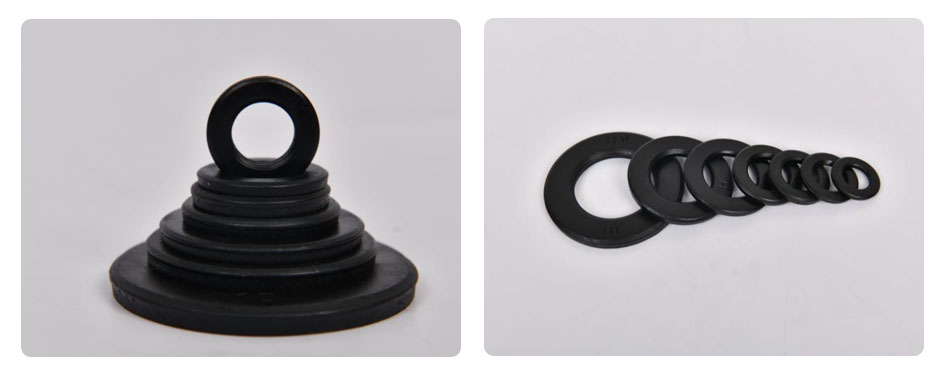Comparing Flat Washers and Lock Washers for Optimal Fastening Solutions
Flat Washer vs. Lock Washer Understanding Their Roles and Uses in Assembly
When it comes to assembling machinery or structures, understanding the components that contribute to stability and functionality is essential. Among these components, washers play a crucial role in distributing loads, preventing damage, and ensuring secure connections. Two common types of washers are flat washers and lock washers. Although they may seem similar, each serves a unique purpose and is suited for different applications.
Flat Washers Functionality and Applications
Flat washers are simple, circular pieces of metal or plastic with a hole in the center. Their primary function is to distribute the load of a screw or nut evenly, which helps to prevent damage to the surface being fastened. By providing this surface area, flat washers can reduce the risk of the fastener pulling through the material, particularly in softer materials like wood or plastic. Additionally, flat washers can help prevent corrosion by acting as a barrier between the fastener and the workpiece.
Flat washers are incredibly versatile and can be found in various industries, from construction to automotive manufacturing. They are often used in applications where a secure load distribution is crucial, such as securing equipment, machinery, and even furniture. When selecting a flat washer, it is essential to consider its size, material, and load rating to ensure compatibility with the intended application.
Lock Washers The Importance of Prevention
flat washer vs lock washer service

Lock washers, on the other hand, serve a different function. These washers are designed to prevent fasteners from loosening due to vibrations or torque. Lock washers typically have a split design or a series of teeth that dig into the fastener and the surface, creating friction that helps keep the connection secure. This feature makes them particularly useful in applications where movement is expected, such as in automotive and machinery settings.
There are several types of lock washers, including split lock washers, tooth lock washers, and wave washers, each designed to offer varying levels of resistance against loosening. Selecting the right type of lock washer is crucial, as different applications may require specific designs to withstand vibration and other forces effectively.
Choosing Between Flat and Lock Washers
When determining whether to use a flat washer or a lock washer, consider the specific needs of your application. If your primary concern is load distribution and surface protection, flat washers are the appropriate choice. Conversely, if preventing loosening due to vibration is essential, lock washers are the better option. In many cases, these washers can be used in conjunction, with flat washers providing load distribution while lock washers ensure that the fastener remains tight.
In conclusion, both flat washers and lock washers are integral components in mechanical and structural assembly. Understanding their distinct roles and applications allows engineers and builders to make informed choices, ultimately enhancing the performance and longevity of their projects. Whether you are securing machinery or assembling furniture, selecting the right washer can make all the difference in achieving a stable and reliable connection.
-
Top Choices for Plasterboard FixingNewsDec.26,2024
-
The Versatility of Specialty WashersNewsDec.26,2024
-
Secure Your ProjectsNewsDec.26,2024
-
Essential Screws for Chipboard Flooring ProjectsNewsDec.26,2024
-
Choosing the Right Drywall ScrewsNewsDec.26,2024
-
Black Phosphate Screws for Superior PerformanceNewsDec.26,2024
-
The Versatile Choice of Nylon Flat Washers for Your NeedsNewsDec.18,2024










